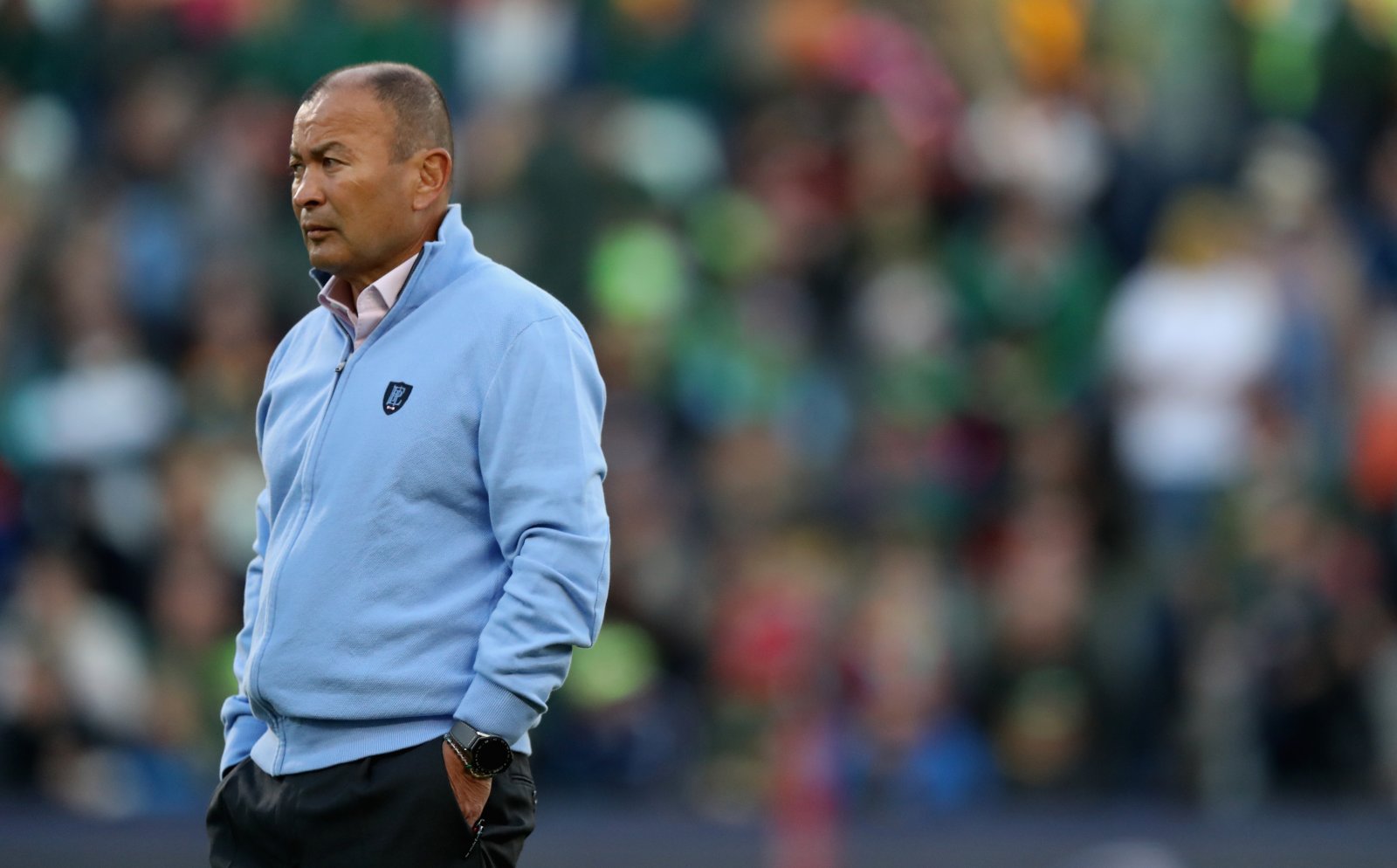
By Nick Cain
England are in danger of drowning and their one time saviour, Eddie Jones, is starting to look like a lifeguard who can’t swim. The Armageddon scenario of five consecutive Test losses, capped off by a series defeat in South Africa, is now reality, and at this rate there is every chance of it continuing this autumn on home soil, leaving the Jones regime in free fall heading into the 2019 World Cup.
Even a win in Cape Town in the final Test of this three Test series will be seen as Pyrrhic unless this England team displays some of the tactical nous which has gone AWOL this season, thereby providing at least some prospect of an autumn revival.
That series at Twickenham is only four months away, but at this distance the thread of hope attached to it is the thinnest of strands given the quality of the opposition.
Having allowed South Africa to kick-start their revival under Rassie Erasmus at their expense, England’s first opponents in November are a Springbok side that now have their measure. They are followed by reigning world champions, New Zealand, with Japan next, and then a resurgent Australia.
That is a whirlpool of fixtures, and the mandarins at RFU headquarters thinking a victory over Japan is a banker will now be twitching at the rapid improvements the team from the Land of the Rising Sun have made under their Kiwi coach, Jamie Joseph.
Meanwhile, this week at their base in the Indian Ocean beach resort of Umhalanga just north of Durban, there was an air of unreality about the England camp.
There is a prevailing sense with this squad of leading players and coaches who are mostly introverts – with new captain Owen Farrell, fly-half George Ford, former England captain Chris Robshaw, and forwards coach Steve Borthwick foremost among them – led by an intense extrovert in Jones.
The England coach has fostered an ‘us-against-the-world’ mentality in which the media are seen as the agents of chaos, and that while he is capable of keeping them at bay with his quick wits, his more insular players and coaches have to be protected from them.
This approach breeds men who are less likely to think for themselves and that shows in pressure situations.
Jones takes the view prevalent among many of the modern super-coaches that his main job is England winning matches, and that if he does that everything else should be plain sailing. By the same token anything that gets in the way – such as media commitments – must be controlled meticulously.
Compared to the big American sports, Press access is very limited with only one or two players – and rarely those requested by the media – available for interview at media sessions.
For instance, Tom Curry, the Sale openside flanker who has just turned 20 has been part of the England squad for the past year, but has been kept under wraps for the entire period at Jones’ insistence. Similarly, England have a support staff of 30, ranging from psychologists to strength and conditioning experts, who so far have been almost entirely off bounds.
Given that this restrictive policy takes much of the human interest element out of the England equation – or at least that which does not involve Jones – media relations around the camp inevitably become strained. Equally inevitably, when England are losing rather than winning this is exacerbated.
That scenario also goes a long way to explaining why even the most high profile of the current generation of England players are not exactly household names, with the likes of Lawrence
Dallaglio, Jonny Wilkinson and Martin Johnson still foremost in the minds of the general public when rugby is mentioned even though it is 15 years since their World Cup triumph.
There were no question marks over the captaincy credentials of either Johnson or Dallaglio, who were talismans for their clubs as well as their country, but for Jones’ England leadership is another area which has been highlighted as a problem which shows every sign of becoming intractable.
When Farrell was asked how he was finding captaincy on this tour after taking over from Dylan Hartley, below, he said that he was enjoying it, before adding: “It’s not as challenging as people think on the outside.”
Farrell added that not too much has changed because he has the support of the same players in the leadership group that he had before, and that as captain he has a similar role in it.
When I asked Jones whether he felt his captain had been sufficiently influential in trying to nip the 17-4 penalty count in the bud as England went into self-destruct mode for the middle 40 minutes of the first Test his response was that Farrell is a work in progress.
“He’s just evolving as a captain. Who was the first homo sapiens? Neanderthal Man? That’s how captains start – he starts on all fours…then he gradually gets upright, and then his communication skills get better. It’s like the evolution of man.”
The England coach added: “The captain can give direction, but sometimes players get caught up in the emotion of the game. We started playing the scoreboard, rather than playing the game, and once you start playing the scoreboard, people’s thoughts go to their own selves rather than the team. What Owen communicated to the team – and with his own actions – was strong. He is not he fully fledged captain yet, but he will move towards that.”
Jones added that he had been particularly impressed by the way Farrell had delegated responsibility.
But what he should examine is whether this constant corporate-style ‘sharing’ of responsibility is undermining the straightforward role of a captain, so that instead of one-man one-message England’s multiple ‘leaders’ create more confusion than they do clarity.
It certainly did not appear to work against the Barbarians when Robshaw and Ford were co-captains and could not come up with any answer to a side playing fast and loose – so what chance if there are at least another four on-field leaders airing their views during this Test series against South Africa?
That failure to find clear cut answers was also apparent in the way Ben Youngs, Farrell, forwards coach Borthwick, and outgoing defence coach Paul Gustard talked about the breakdown in the aftermath of the Ellis Park test.
Gustard and Borthwick both contended that England’s breakdown work in attack has improved out of sight since they were exposed by the Scots in the Six Nations. Much of this was based on their purple patches at the beginning and end of the first encounter against the Boks, where the ball was delivered reasonably quickly.
Even so, it was not so flash that Duane Vermeulen and Jean-Luc Du Preez did not win important turn-overs or disrupt as the game progressed, yet this was airbrushed out of the picture – as was the no show by the Red Rose back row of Robshaw, Curry and Billy Vunipola in the turn-over department.
There was no naming of names, but this week Youngs and Farrell spoke critically of England’s failure to compete effectively at the breakdown when they were defending, either allowing Springbok scrum-half Faf de Klerk a constant supply of fast front-foot ball or giving away penalties.
Youngs said: “When you get the ball and you have momentum it is considerably easier, we knew they would have the ball for a period, but unfortunately we were so inaccurate with our decisions around the breakdown in terms of when to compete and when not to, giving away soft penalties, playing the nine and things like that, you just give up such easy field position and take away any momentum you have in the game. One time I think we lost possession four times on the bounce and that can be quite frustrating out there. You give up easy territory and possession and the penalties just keep adding up.”
Youngs is not the only senior England player who offers cogent post-facto explanations of what has gone wrong while failing to find a remedy during match play. During this losing run it has become a hallmark of this side, just as it was towards the end of Stuart Lancaster’s tenure.
Farrell was the same as he reflected on England’s defensive breakdown decision-making. “The main thing is to be decisive. We can’t half do one thing and half do another. Do that and you get caught somewhere else. The main thing is to really commit to the decision at the breakdown. It’s about trusting your instincts. There are a lot of good players here and the first thing that pops into your head is usually the right thing. If we are able to be decisive, we will be able to set our defence quicker.”
The player to pay the price for the breakdown shortfall was Robshaw, who was axed from the starting 23 in Bloemfontein in ruthless fashion by Jones as Brad Shields supplanted him at blindside.
To be blunt Robshaw has been struggling since the Scotland game but Jones has stubbornly defended him as a great ‘glue player’ his side cannot do without. Jones put his about-turn on Robshaw down to the Harlequins back rower losing form and the need for another line-out forward against the Boks, but the reality is that the hard grounds here have highlighted that he is not quick enough to the breakdown or enough of a menace when he gets there.
However, the speed with which Robshaw has been cut indicates that as soon as Jones started
talking to Shields about leaving New Zealand for England the Harlequins flanker’s place was in jeopardy.
What became apparent as soon as the Kiwi-born Shields sat down in the Umhalanga Indian restaurant that doubled last week as a media centre for his first interview is that he has more confidence in dealing with the Press than the majority of his new team-mates.
Shields fielded awkward questions about his English heritage in straightforward fashion – mum from Essex, dad from Hull, aunt in Marlow, chip-butties, English grandparents with commemorative tea-spoons on the wall.
The Wasps-bound Hurricanes captain was also candid about his ambition to play at the highest level he can, and that with England opening the door at international level after New Zealand had kept it closed he did not hesitate.
You could not help but conclude that Shields has exactly the leadership qualities that Jones said at the start of his tenure are in short supply in England.
Due to lack of playing time and team politics there is no way he will be promoted to the captaincy in the short term, but unless this losing run is arrested rapidly that could change.
Jones has already had one Kiwi-born captain, so the precedent is set.

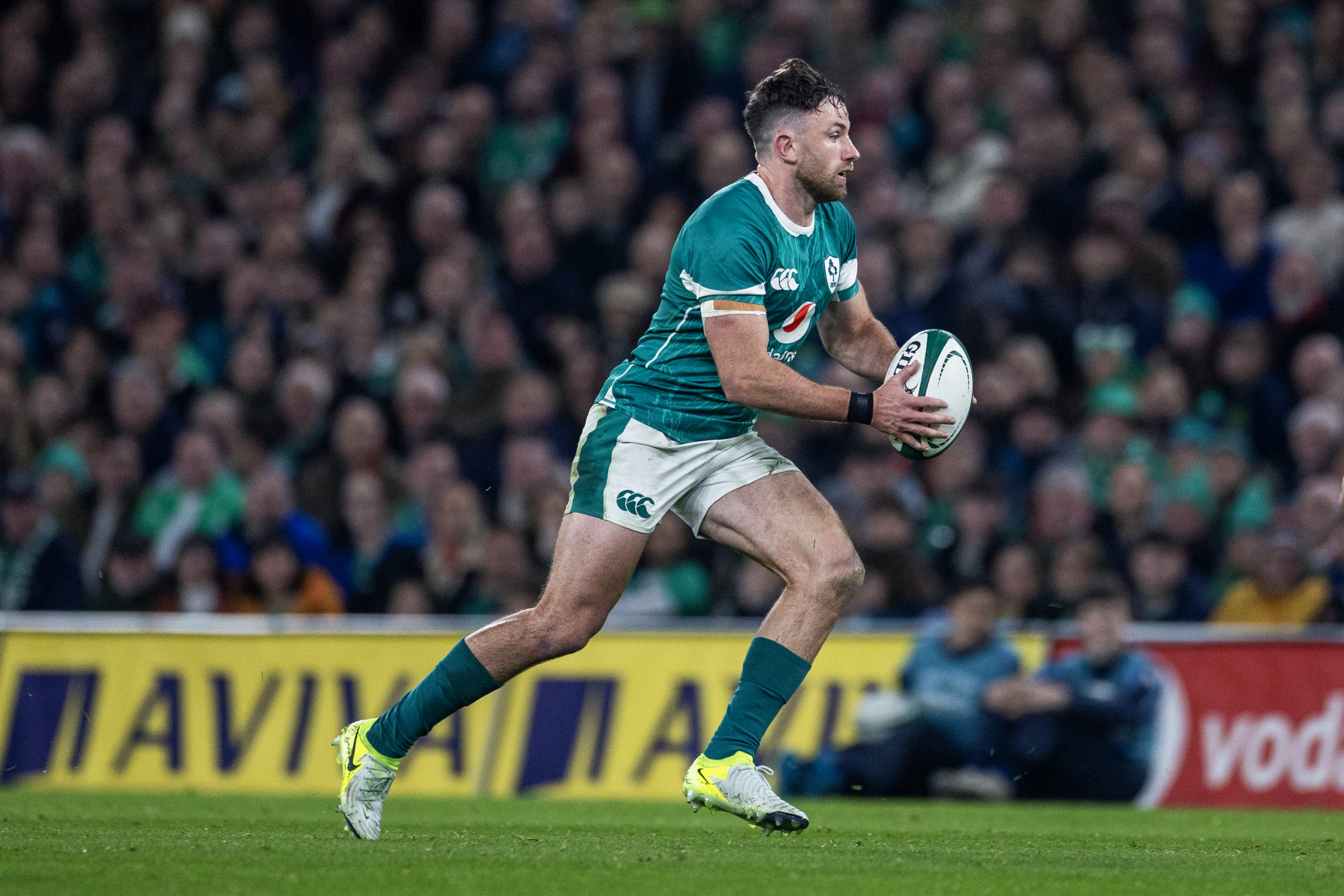
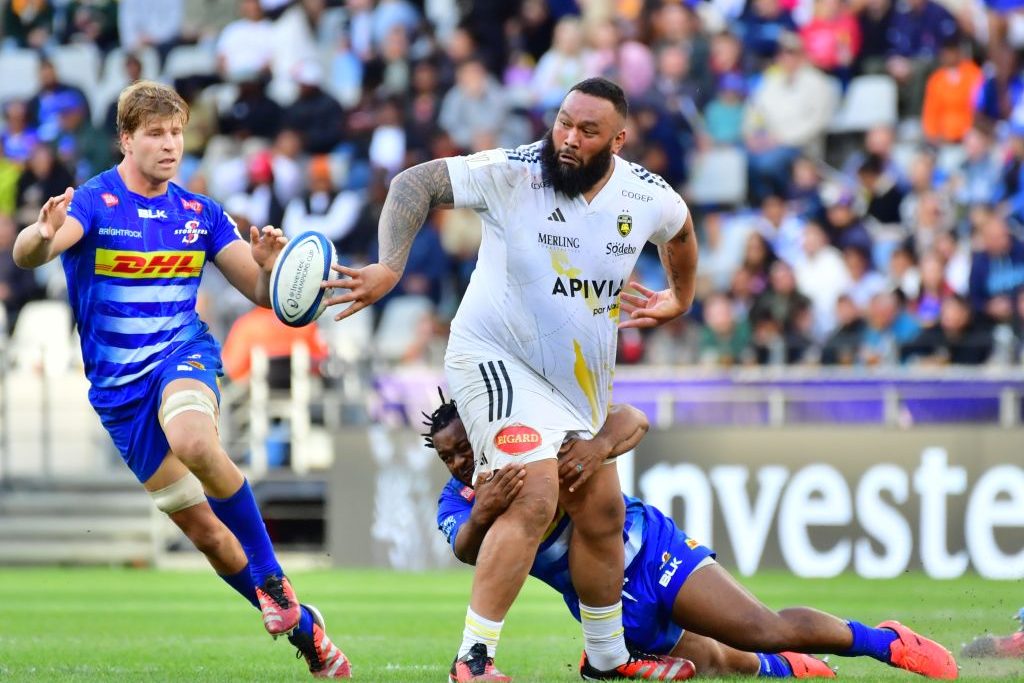



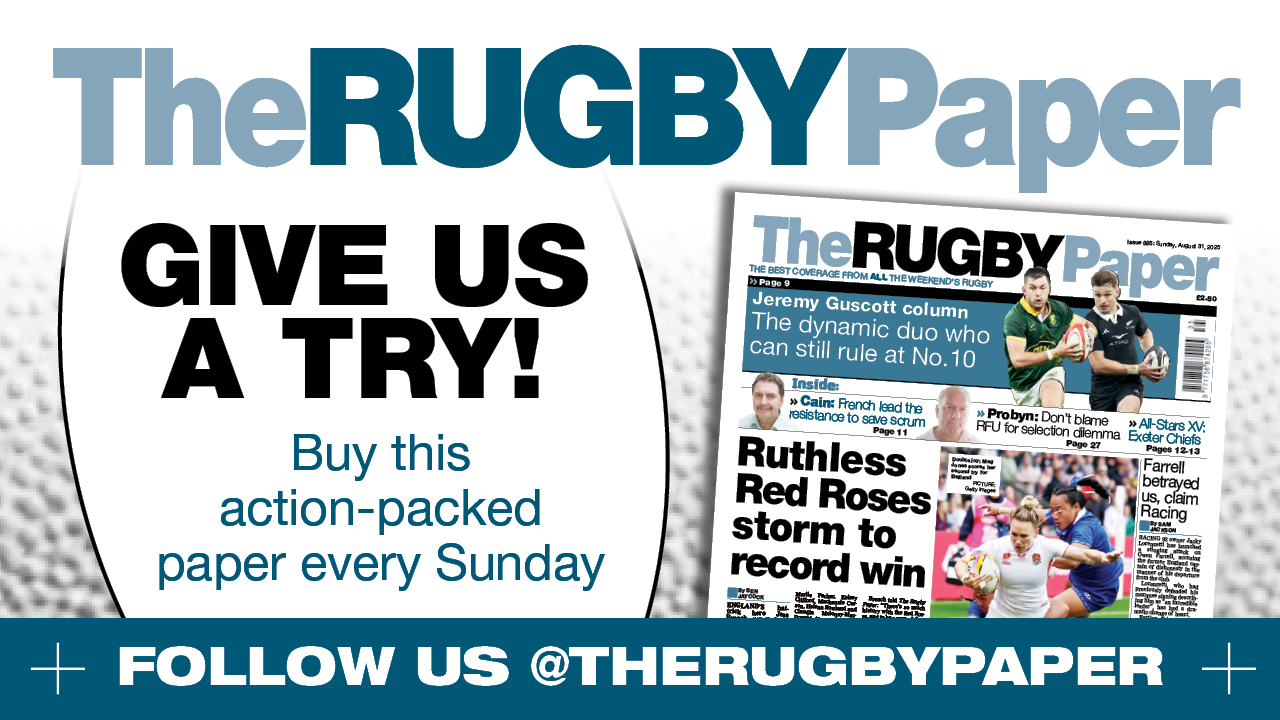











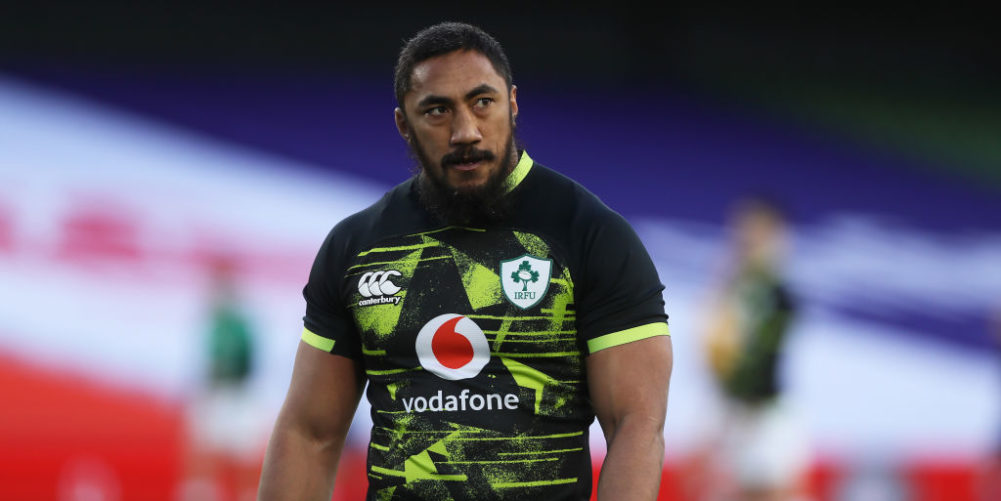
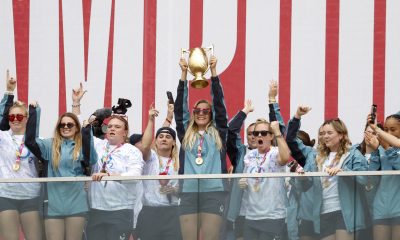




You must be logged in to post a comment Login